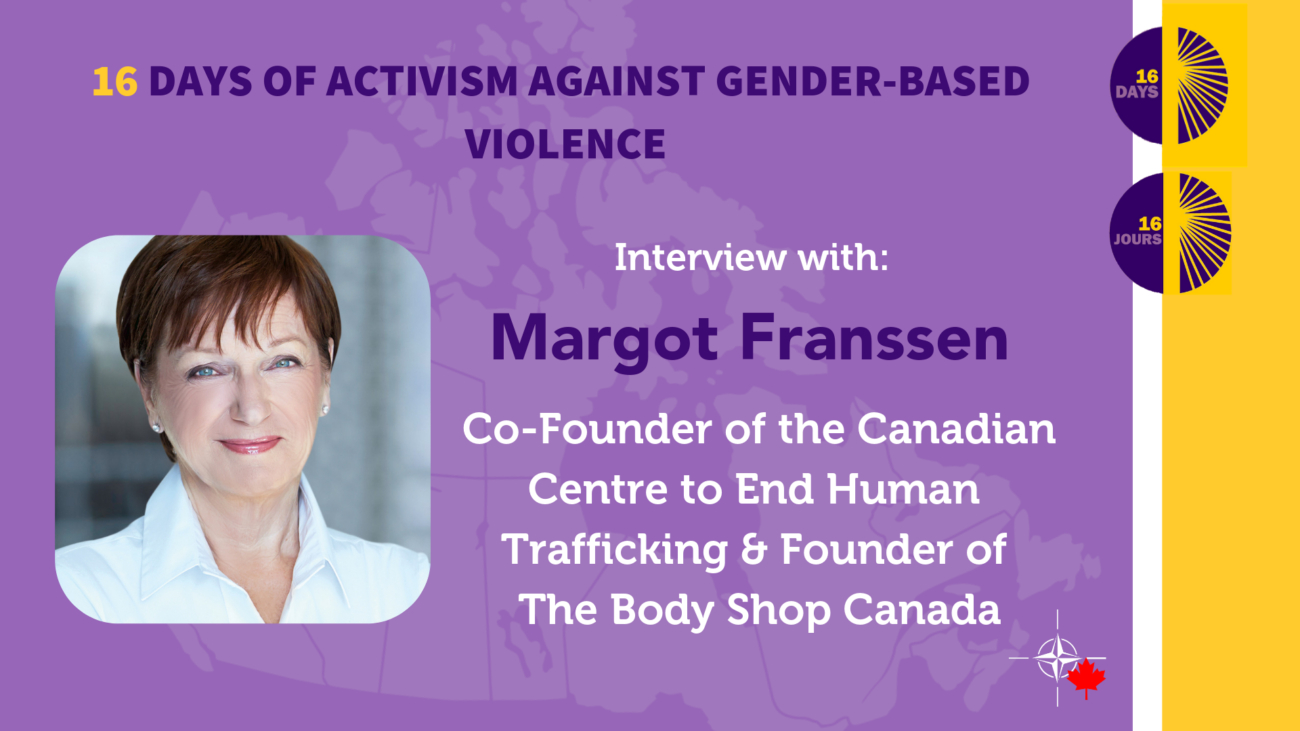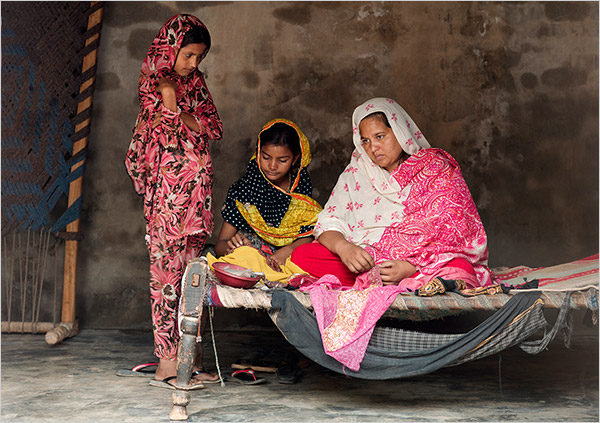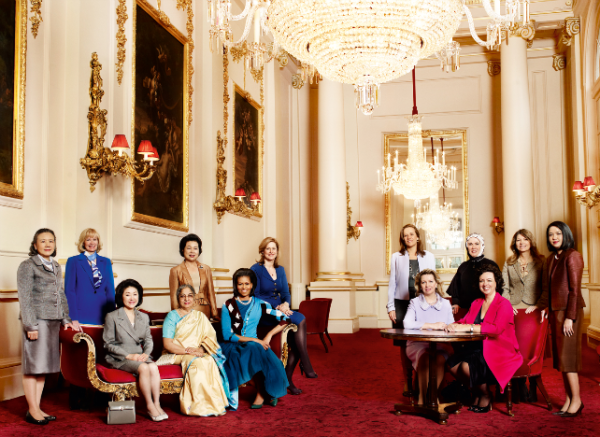Every year, from November 25th to December 10th, the NATO Association of Canada is proud to participate in the 16 Days of Activism Against Gender-Based Violence Campaign. This campaign highlights the need to address the violence that women face at all levels and in all arenas. This year, the focus is on ending gender-based violence in the workplace. This campaign provides a platform for raising awareness and it provides a forum for discussing strategies on how to effectively tackle this issue.
The NATO Association of Canada has compiled a series of interviews of some of Canada’s most high-profile women who discuss how to implement best practices in the workplace as well as the role women play in leadership positions.
About Margot Franssen:
In 1980 Margot Franssen founded The Body Shop Canada creating a company recognized for its ethical business practices and its commitment to promoting “Profits with Principles.” Under the leadership of Margot, The Body Shop Canada achieved brand recognition just behind McDonald’s Restaurants Canada, building this strong awareness without the use of traditional advertising. It was considered globally as the most successful of all The Body Shop franchises.
In 2002 she was appointed an Officer of the Order of Canada, and she has received the Outstanding Achievement in the Advancement of Women Award from the United Nations Development Fund UNIFEM. Margot has an Honourary Doctor of Humane Letters 1995 and an Honourary Doctor of Laws, Honoris Causa 1994. She has been named one of the Top 25 Most Influential Women in Canada, and one of the 21 Leaders of the 21st Century, among many other prestigious honours.
In 2004, The Body Shop Canada was sold, and Margot devoted her time to the advancement of Women and Girls. She is an innovative and passionate communicator in Canada and a leading voice on the issues of social justice and women’s rights, encouraging everyone to speak out and take action for positive change. She has effectively brought issues to the forefront of the public consciousness and has inspired countless groups and organizations from coast-to-coast with her powerful and unique style.
She co-chaired the National Task Force on Sex Trafficking of Canadian Girls which led her to co-found The Canadian Centre To End Human Trafficking (canadiancentretoendhumantrafficking.ca) where she serves as Co-Chair. Today she also serves on the board of Goldcorp, one of the largest mining companies in the world and on the board of the Donner Canadian Foundation.
She has served on many boards including CIBC, Women’s College Hospital and York University, and is a founding Board Member of Women Moving Millions, a community devoted to raising million-dollar gifts from women for women and girls.
Interview:
Julia: What are some of the things that companies and organizations can do to eradicate workplace harassment and to implement best practices?
Margot: My answers are based on my experience at Goldcorp which is the gold mining company where I am a board member.
In my view, there are two critical areas that companies should focus on. The first is creating and fostering a culture of zero tolerance towards harassment, and the second is having robust investigation protocols, procedures and personnel skilled in managing investigations to address harassment complaints.
Culture
While policies in and of themselves do not prevent harassment, they set the company’s expectations of behavior and outline the process around how complaints are addressed. Goldcorp’s Code of Conduct is the cornerstone of our ethics and compliance program and requires that our workplace be open and inclusive, with professional and respectful behavior and zero tolerance for harassment. In addition to the Code, in Canada, we have “Respect in the Workplace Policies” for each of Ontario, B.C., Quebec and the Yukon. Each of the Canadian sites have their own “Respect in the Workplace Policies”. The Code of Conduct is available on our external website.
To foster a culture of zero tolerance against harassment we focus on several training and awareness initiatives:
- The topic of Respect in the Workplace has been included in every annual on-line Code of Conduct training and certification since 2012. This training reaches all employees who have access to computers. We use actual cases in our training (with identifying details eliminated) as a means of sharing lessons learned.
- All Goldcorp sites and offices include Code of Conduct and Respect in the Workplace policies in their on-boarding process and several sites extend this to contractors.
- In 2017 we produced an “off-line” training package for those employees who do not have access to computers. This training includes the Code of Conduct, Sustainability Excellence and Human Rights and was rolled out in Q1 2018. All sites will be required to run the training through all off-line employees every two years.
- Site Ethics Champions – who act as a local contact point for ethics-related matters.
- Tone at the Middle – site visits by the Director of Ethics & Compliance or the Manager Ethics & Compliance for Latin America with one on one meetings with all site managers and supervisors to support ethical leadership and identify areas of concern.
- Ethics & Compliance Survey – done every two years to assess employee perception of the tone at the top (corporate and site) and policy awareness and understanding.
- Communications Strategy – amongst other initiatives, includes collaboration and coordination with corporate Communications to ensure the topic of the ethics is continuously and consistently communicated throughout the organization.
Investigations
The Code of Conduct and Respect in the Workplace policies require that all actual or potential violations of the policy be reported. There are multiple reporting channels available including confidential reporting. Failure to report and retaliate are policy violations. Last year we implemented Internal Investigation Protocols that outline how ethics-related complaints are to be addressed. Cases of actual or suspected sexual harassment require escalation and involvement of the corporate legal, ethics and compliance teams, involvement of the respective SVP/EVP and the corporate Ethics and Compliance Committee. This Committee was established in 2012 and comprises various members of the senior leadership team. They meet on a quarterly basis to review ethics complaints from across the company to ensure that issues are dealt with in a fair, consistent and appropriate manner. In addition, the Committee provides an opportunity to proactively address potential ethical or compliance issues.
All sites provide internal training to employees who conduct investigations to ensure investigations are carried out impartially, fairly, and with sensitivity, and to recognize when to include additional resources and expertise. Sexual harassment investigations will include our local in-house legal team.
So, in summary we have a relentless focus on maintaining a culture of zero tolerance for harassment at Goldcorp. We require reporting of actual or suspected cases of harassment which are addressed according to strict investigation protocols. That said, we continuously look for opportunities to strengthen our culture and investigation protocols.
Disclaimer: Any views or opinions expressed in articles are solely those of the authors
and do not necessarily represent the views of the NATO Association of Canada.




